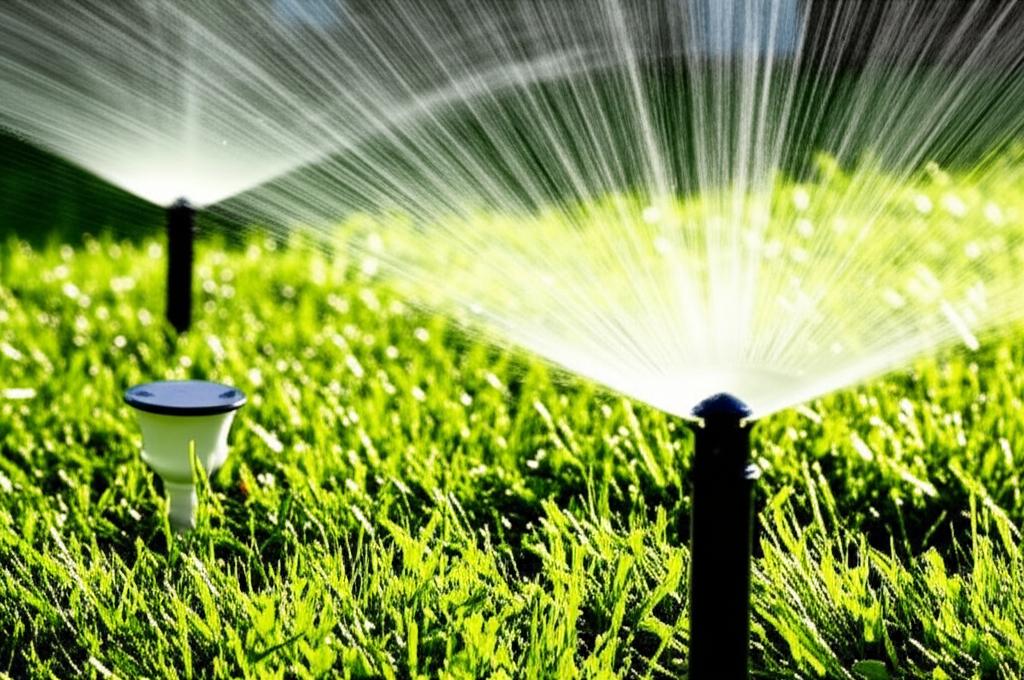Smart Garden Tech: Benefits of AI-Powered Irrigation Systems
Smart technology continues to revolutionize home landscapes, and AI-powered irrigation systems stand out as a practical innovation for efficient water management. These systems help homeowners conserve resources, reduce expenses, and maintain vibrant gardens with minimal effort. At Dickinson's Garden Center, we have seen how these tools transform ordinary yards into sustainable spaces, and this guide explores their key advantages to help you decide if they fit your needs.
Understanding AI-Powered Irrigation Systems
An AI-powered irrigation system employs advanced sensors, real-time weather data, and intelligent software to optimize watering schedules. Unlike traditional timers that operate on fixed intervals, these systems respond dynamically to environmental conditions. They assess soil moisture levels, monitor upcoming rainfall, and tailor water delivery to specific plant requirements across different garden zones.
This responsive approach marks a significant improvement over conventional methods, which often lead to unnecessary watering and waste. Homeowners who install these systems gain precise control, ensuring that lawns and gardens receive exactly what they need without excess.
How These Systems Operate
AI irrigation systems integrate several components to function effectively. Soil sensors embedded in the ground continuously measure moisture content and relay data to a central controller. Weather integration pulls forecasts from local sources, allowing the system to pause operations during expected rain. Smart controllers analyze usage patterns over time, refining schedules based on historical data and current conditions.
Mobile apps provide remote access, enabling users to monitor and adjust settings from anywhere. For instance, during a prolonged dry spell, the system increases watering frequency to prevent plant stress, while it conserves water by skipping cycles ahead of storms. This adaptive process ensures optimal hydration without manual intervention.
Expected Costs and Investment Considerations
The cost of an AI-powered irrigation system depends on your property size and the complexity of your landscape. Basic smart controllers typically range from $150 to $300, offering entry-level automation for smaller areas. Comprehensive setups, including multiple sensors and app integration, often fall between $500 and $1,200.
Professional installation adds $400 to $1,000, covering labor for zoning, sensor placement, and system calibration. Although initial expenses exceed those of standard timers, long-term savings from reduced water consumption frequently offset the investment within two to three years, based on average utility rates.
Key Advantages
These systems deliver substantial water savings, often reducing usage by 20 to 40 percent through targeted delivery that avoids overwatering. Plants thrive with consistent moisture levels, which minimize issues like root rot or drought stress in lawns, shrubs, and flower beds.
Convenience plays a major role, as the automation eliminates seasonal timer adjustments and concerns during vacations. Custom zoning allows precise watering for diverse areas, such as delivering more moisture to thirsty vegetable patches while conserving for drought-tolerant grasses.
Potential Drawbacks
The primary challenge involves the higher upfront cost, which requires careful budgeting for sensors and controllers. Maintenance demands periodic attention, including software updates and sensor cleaning to prevent inaccuracies from dirt accumulation.
Users may encounter a learning curve when first navigating the app and customizing settings. Reliable Wi-Fi connectivity remains essential, as interruptions can affect performance in remote yard areas.
Installation Approaches
Homeowners with basic DIY skills can install these systems themselves, following manufacturer guides for wiring and plumbing connections. Many models feature user-friendly designs that integrate with existing sprinkler lines, making the process accessible for most.
For expansive or intricate properties, professionals ensure optimal setup by mapping zones, positioning sensors accurately, and addressing technical aspects like water pressure and backflow prevention. At Dickinson's Garden Center, our experts recommend starting with a site assessment to customize the system to your garden's unique layout.
Maintenance Tips and System Durability
AI irrigation systems generally endure 7 to 10 years, comparable to traditional setups, with controllers proving particularly robust. Sensors, however, may require replacement every 3 to 5 years due to exposure to elements.
Routine care includes inspecting sensors for buildup, updating firmware through the app, and cleaning sprinkler heads seasonally. These steps maintain efficiency and extend the system's lifespan, ensuring consistent performance year after year.
Ideal Users for This Technology
AI-powered systems suit homeowners in regions with strict water regulations or elevated utility costs, where conservation directly impacts budgets. Properties with varied plant species benefit from zoned watering that addresses individual needs without waste.
Frequent travelers appreciate the hands-off operation, which prevents garden neglect during absences. Those committed to sustainable practices find these systems align with eco-friendly goals by minimizing runoff and promoting resource efficiency.
For very small yards or minimal plantings, simpler alternatives like manual drip lines may prove more economical, as the advanced features could exceed basic requirements.
Practical Steps to Get Started
Begin by evaluating your yard: identify distinct zones based on plant types and sun exposure, then test outdoor Wi-Fi strength to confirm connectivity. Research models that match your existing infrastructure, prioritizing those with intuitive interfaces and strong customer support.
Consult professionals for personalized estimates on potential water savings, drawing from your current usage patterns. This preparation helps you select a system that delivers measurable benefits, such as cutting monthly bills by specific percentages tailored to your location.
Conclusion
AI-powered irrigation systems enhance garden care by leveraging data for precise, efficient watering that supports plant health and financial savings. They represent a worthwhile upgrade for those seeking sustainability with reduced effort, transforming routine maintenance into an automated process.
Review your watering routines today, and consider how this technology could elevate your garden's potential. At Dickinson's Garden Center, we guide customers through selections that match their lifestyles, ensuring every investment yields lasting value.



